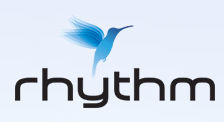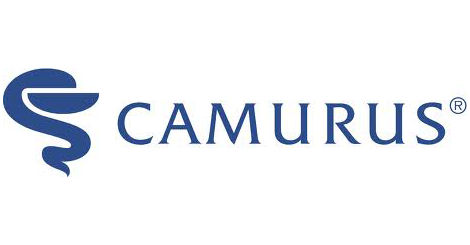– U.S. Food and Drug Administration accepts sNDA for filing with priority review; sets PDUFA goal date of December 20, 2025 —
– European Medicines Agency accepts and validates submission for Type II variation MAA for setmelanotide to treat acquired hypothalamic obesity –
– Company to host “Commercial Readiness for Acquired Hypothalamic Obesity,” event for investors and analysts on Wednesday, September 24, in Boston –
BOSTON, MA, USA I August 20, 2025 I
Rhythm Pharmaceuticals, Inc. (Nasdaq: RYTM), a commercial-stage biopharmaceutical company focused on transforming the lives of patients living with rare neuroendocrine diseases, today announced that the U.S. Food and Drug Administration (FDA) has accepted for filing the company’s supplemental New Drug Application (sNDA) for setmelanotide seeking approval for the treatment of conditions associated with acquired hypothalamic obesity. The FDA has granted Priority Review of the sNDA and assigned a Prescription Drug User Fee Act (PDUFA) goal date of December 20, 2025.
Additionally, the European Medicines Agency (EMA) has confirmed validation of the Type II variation submission to the Marketing Authorization Application (MAA) for setmelanotide for the same indication. The application review began on August 16, 2025, by the Committee for Medicinal Products for Human Use (CHMP), which will issue an opinion to the European Commission (EC) regarding potential approval.
Setmelanotide is a melanocortin-4 receptor (MC4R) agonist, previously approved as IMCIVREE
®
by the FDA, the EMA, and UK’s Medicines & Healthcare Products Regulatory Agency (MHRA) for obesity due to Bardet-Biedl syndrome and POMC, PCSK1 or LEPR deficiencies.
“Taken together, these important milestones represent a crucial step in our urgent mission to bring forward the first approved treatment for patients with acquired hypothalamic obesity,” said David Meeker, M.D., Chairman, Chief Executive Officer and President of Rhythm. “Treatment approaches indicated for general obesity offer limited long-term efficacy for patients living with acquired HO, who face unique challenges including reduced energy expenditure and increased hunger or hyperphagia specifically resulting from MC4R pathway impairment due to hypothalamic injury. We’re committed to working closely with regulators to make setmelanotide available to the patient community as quickly as possible.”
The sNDA and Type II Variation are supported by statistically significant and clinically meaningful data from the pivotal Phase 3 TRANSCEND trial of setmelanotide in 120 patients with acquired hypothalamic obesity.
Topline results
from TRANSCEND, the largest and longest randomized, placebo-controlled trial in acquired hypothalamic obesity to date, were presented in an oral session at the Endocrine Society’s Annual Meeting in April 2025. The global study met its primary endpoint, with a statistically significant -19.8% placebo-adjusted reduction in body mass index (BMI). For the primary endpoint of mean BMI change from baseline, study participants on setmelanotide therapy (n=81) achieved a -16.5% reduction compared with a +3.3% increase among patients on placebo (n=39) at 52 weeks (p<0.0001). Adult patients (age 18 and older; n=49) achieved a -19.2% placebo-adjusted BMI reduction at 52 weeks, and pediatric patients (younger than age 18; n=71) achieved a -20.2% placebo-adjusted BMI reduction at 52 weeks. Setmelanotide was generally well tolerated in the TRANSCEND study. The most common treatment-emergent adverse events (affecting >20% of participants) were nausea, vomiting, diarrhea, injection site reaction, skin hyperpigmentation and headache.
Commercial Readiness for Acquired Hypothalamic Obesity
Rhythm will host “Commercial Readiness for Acquired Hypothalamic Obesity,” an event for investors and analysts on Wednesday, September 24, 2025, from 8:30 a.m. to 11:30 a.m. ET in Boston, MA to review U.S. launch plans. The event will also feature insights from leading physicians about the urgent need to treat patients with acquired hypothalamic obesity.
A live webcast of the event will be available under “Events and Presentations” in the Investor Relations section of the Rhythm Pharmaceuticals website at
https://ir.rhythmtx.com/
. The archived webcast will be available on Rhythm Pharmaceuticals’ website approximately two hours after the event and will be available for 30 days following the event.
About the Phase 3 TRANSCEND Trial
The global, randomized, double-blind, placebo-controlled Phase 3 TRANSCEND trial evaluated the efficacy and safety of setmelanotide in patients with acquired hypothalamic obesity. A total of 120 patients aged 4 years and older were randomized 2:1 to either a daily subcutaneous injection of setmelanotide or placebo. The primary endpoint was mean percent change in body mass index (BMI) from baseline after 52 weeks of treatment. Secondary endpoints assessed daily hunger, hyperphagia (extreme unsatisfied drive to consume food), weight, quality of life, and safety and tolerability. A supplemental cohort of 12 Japanese patients remains ongoing with completion and topline data anticipated in the first quarter of 2026.
About Acquired Hypothalamic Obesity
Acquired hypothalamic obesity is a rare form of obesity that occurs following physical injury or structural abnormality of the hypothalamus with MC4R pathway disruption and other functional impairment. The MC4R pathway is responsible for controlling physiological functions such as energy expenditure, hunger and weight regulation. Acquired hypothalamic obesity most frequently follows the growth or treatment of craniopharyngioma, astrocytoma or other hypothalamic-pituitary tumors. Additional causes of injury may include traumatic brain injury, stroke or inflammation. Due to impairment of the MC4R pathway, patients experience reduced energy expenditure and increased hunger or hyperphagia, leading to accelerated and sustained weight gain most commonly beginning within six to 12 months following injury.
Rhythm estimates there are 5,000 to 10,000 people living with acquired hypothalamic obesity in the U.S. and 3,500 to 10,000 people living with acquired hypothalamic obesity in the EU.
About Rhythm Pharmaceuticals
Rhythm is a commercial-stage biopharmaceutical company committed to transforming the lives of patients and their families living with rare neuroendocrine diseases. Rhythm’s lead asset, IMCIVREE
®
(setmelanotide), an MC4R agonist is approved by the FDA to reduce excess body weight and maintain weight reduction long term in adult and pediatric patients 2 years of age and older with syndromic or monogenic obesity due to Bardet-Biedl syndrome (BBS) or genetically confirmed pro-opiomelanocortin (POMC), including proprotein convertase subtilisin/kexin type 1 (PCSK1), deficiency or leptin receptor (LEPR) deficiency. Both the European Commission (EC) and the UK’s Medicines & Healthcare Products Regulatory Agency (MHRA) have authorized setmelanotide for the treatment of obesity and the control of hunger associated with genetically confirmed BBS or genetically confirmed loss-of-function biallelic POMC, including PCSK1, deficiency or biallelic LEPR deficiency in adults and children 2 years of age and above. Additionally, Rhythm is advancing a broad clinical development program for setmelanotide in other rare diseases, as well as investigational MC4R agonists bivamelagon and RM-718, and a preclinical suite of small molecules for the treatment of congenital hyperinsulinism. Rhythm’s headquarters is in Boston, MA.
Setmelanotide Indication
In the United States, setmelanotide is indicated to reduce excess body weight and maintain weight reduction long term in adult and pediatric patients aged 2 years and older with syndromic or monogenic obesity due to Bardet-Biedl syndrome (BBS) or pro-opiomelanocortin (POMC), proprotein convertase subtilisin/kexin type 1 (PCSK1), or leptin receptor (LEPR) deficiency as determined by an FDA-approved test demonstrating variants in POMC, PCSK1, or LEPR genes that are interpreted as pathogenic, likely pathogenic, or of uncertain significance (VUS).
In the European Union and the United Kingdom, setmelanotide is indicated for the treatment of obesity and the control of hunger associated with genetically confirmed BBS or loss-of-function biallelic POMC, including PCSK1, deficiency or biallelic LEPR deficiency in adults and children 2 years of age and above. In the European Union and the United Kingdom, setmelanotide should be prescribed and supervised by a physician with expertise in obesity with underlying genetic etiology.
Please see the full Prescribing Information for additional Important Safety Information.
About Rhythm Pharmaceuticals
Rhythm is a commercial-stage biopharmaceutical company committed to transforming the lives of patients and their families living with rare neuroendocrine diseases. Rhythm’s lead asset, IMCIVREE
®
(setmelanotide), an MC4R agonist designed to treat hyperphagia and severe obesity, is approved by the FDA to reduce excess body weight and maintain weight reduction long term in adult and pediatric patients 2 years of age and older with syndromic or monogenic obesity due to Bardet-Biedl syndrome (BBS) or genetically confirmed pro-opiomelanocortin (POMC), including proprotein convertase subtilisin/kexin type 1 (PCSK1), deficiency or leptin receptor (LEPR) deficiency. Both the European Commission (EC) and the UK’s Medicines & Healthcare Products Regulatory Agency (MHRA) have authorized setmelanotide for the treatment of obesity and the control of hunger associated with genetically confirmed BBS or genetically confirmed loss-of-function biallelic POMC, including PCSK1, deficiency or biallelic LEPR deficiency in adults and children 2 years of age and above. Additionally, Rhythm is advancing a broad clinical development program for setmelanotide in other rare diseases, as well as investigational MC4R agonists bivamelagon and RM-718, and a preclinical suite of small molecules for the treatment of congenital hyperinsulinism. Rhythm’s headquarters is in Boston, MA.
SOURCE:
Rhythm Pharmaceuticals












